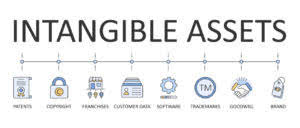

In some cases, bookkeepers can manage payroll services to ensure your employees are paid accurately and on time. During this process, a bookkeeper compares your recorded transactions with your bank statements so they can catch and fix any errors. To keep your business prepared for taxes, audits, and future financial payroll planning, bookkeepers organize and store important financial documents — e.g., receipts, bank statements, and invoices. The single-entry bookkeeping method is often preferred for sole proprietors, small startups, and companies with unfussy or minimal transaction activity. The single-entry system tracks cash sales and expenditures over a period of time.
Which Accounting Jobs Are in Demand?
In fact, many aspiring accountants work as bookkeepers to get a foot in the door while still in school. Bookkeepers who excel at their jobs are also sometimes promoted to accounting positions, even if they lack the level of education the company typically prefers. When first starting out, market yourself as a professional who is well-versed in managing accounts, reconciling transactions, providing financial overviews and balancing budgets.
How Should Businesses Handle Payroll in Bookkeeping?

The very first thing you’ll want to do is open a business bank account so you can separate your personal expenses from your business expenses. At CapForge, we have both bookkeepers and CPAs on staff to provide our clients with whatever services they need. This is ideal for small private companies, sole proprietorships that operate mostly in cash transactions, and businesses that do not have significant inventory or capital. Increase your desired income on your desired schedule by using Taxfyle’s platform to pick up tax filing, consultation, and bookkeeping jobs. Bookkeepers and accountants work with money but have different tasks and needed knowledge. To better understand these concepts and how to apply them, take bookkeeping courses that will allow you to practice them.
Which bookkeeping software are you using for your business?
Whether operating a nimble startup or a sprawling enterprise, these roles adapt to meet your company’s needs. Accounting goes a step further by analyzing, interpreting, summarizing, and reporting the financial data collected by bookkeeping. Accounting turns data into valuable insights, providing forecasts for future business growth, identifying market trends, Law Firm Accounts Receivable Management and supporting strategic planning. Rarely does a bookkeeper work on one big project for an eight-hour shift; instead, a typical workday involves juggling five or six smaller jobs.
- Accounting and bookkeeping are 2 vastly different professions despite the similarities and blurring of roles.
- While bookkeepers don’t need to be experts in accounting, a basic understanding is beneficial.
- Rarely does a bookkeeper work on one big project for an eight-hour shift; instead, a typical workday involves juggling five or six smaller jobs.
- Bookkeeping and accounting professionals require distinct skill sets to manage financial information effectively.
- When you inject $3,500 of personal funds into your business’s cash account, the cash asset account will be debited by the same amount.
- If your business has complex tax needs or you’re unsure about tax regulations, hiring an accountant can ensure compliance and help with tax planning, potentially saving you money in the long run.
Bookkeepers handle daily transactions, record journal entries, and conduct bank reconciliations, while accountants analyze financial data, prepare tax returns, and conduct routine audits. To manage your finances effectively, you need the right software with essential features. Bookkeeping software accounting and bookkeeping services for businesses requires features to handle day-to-day tracking and recording of financial transactions.

